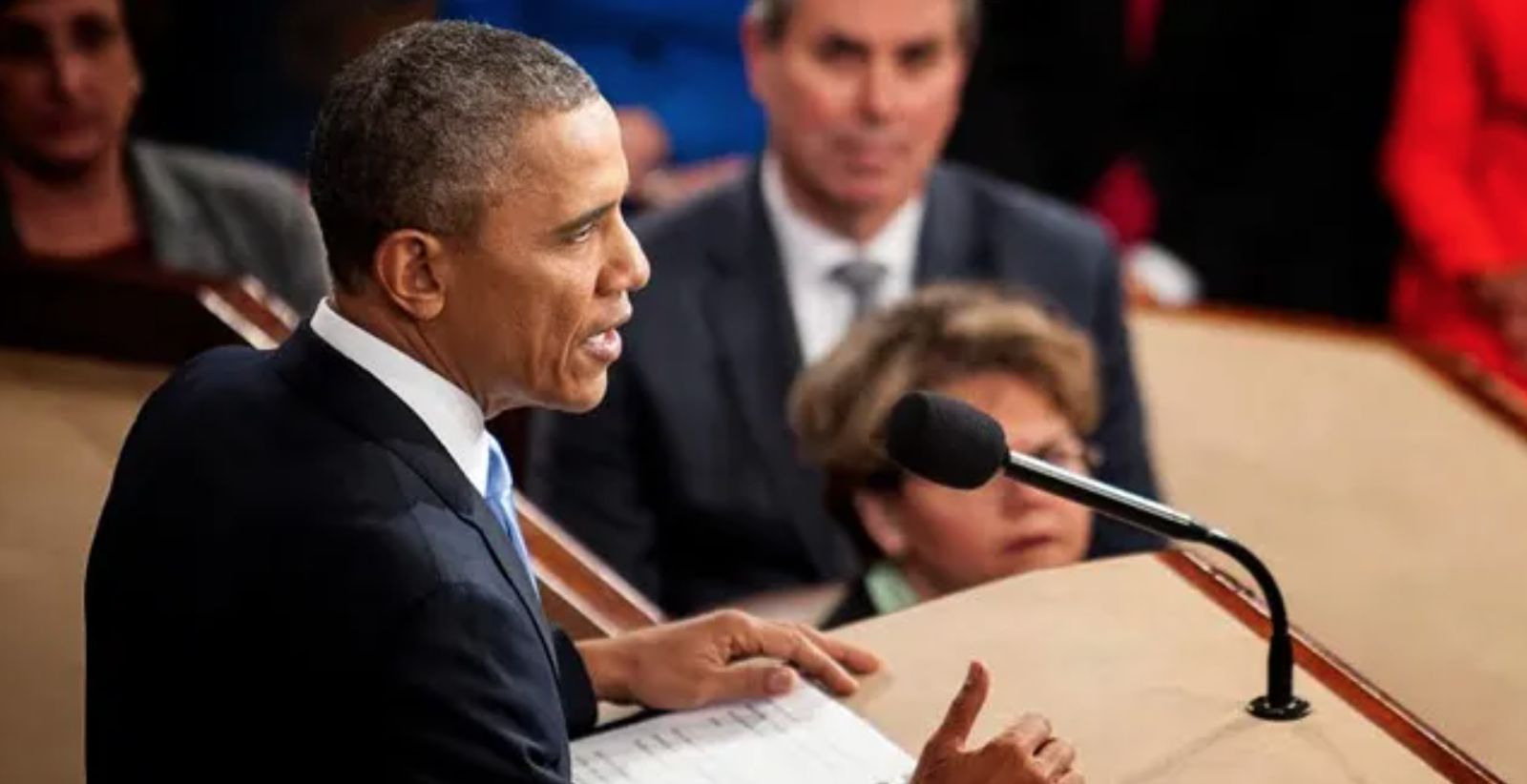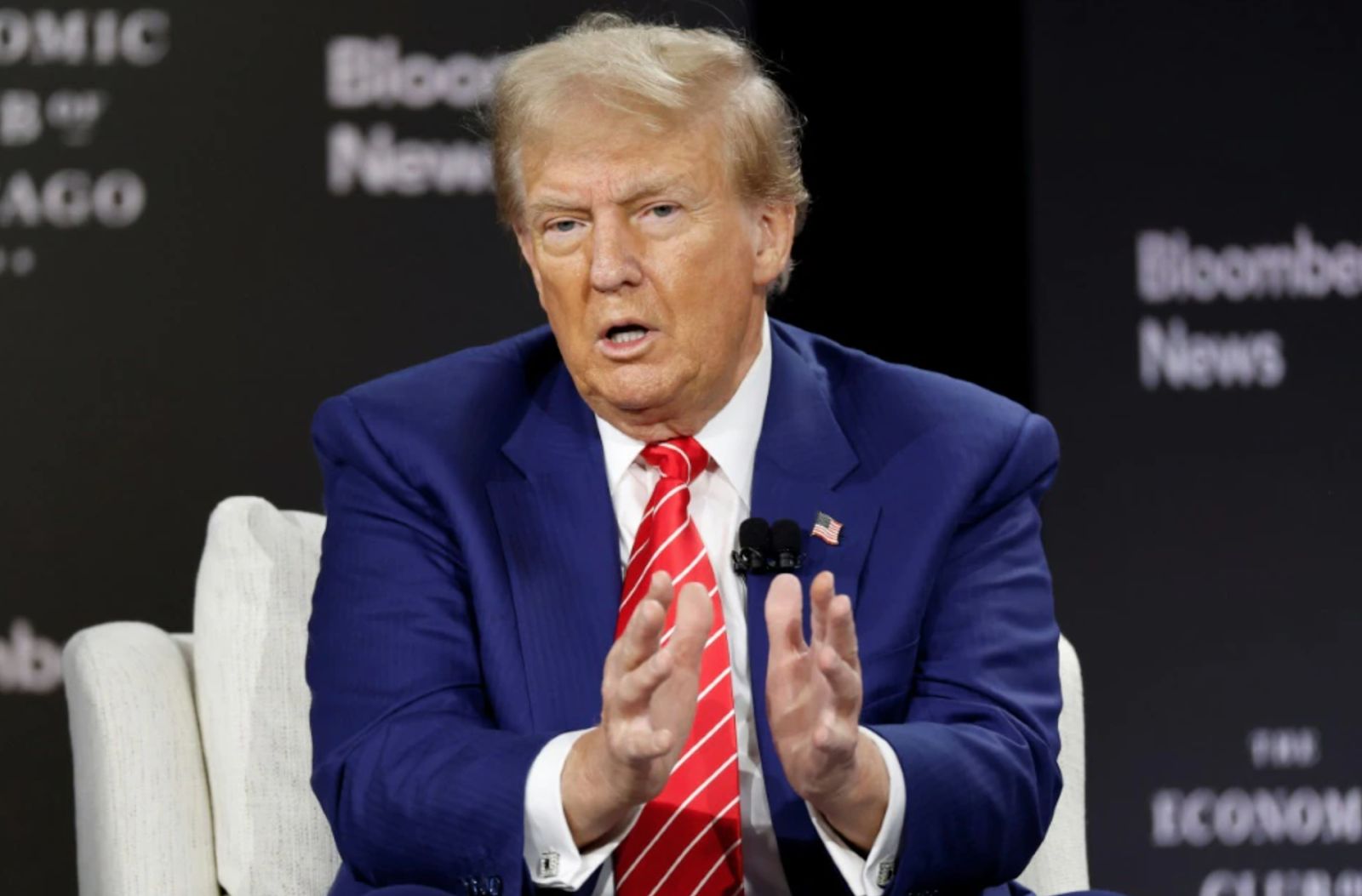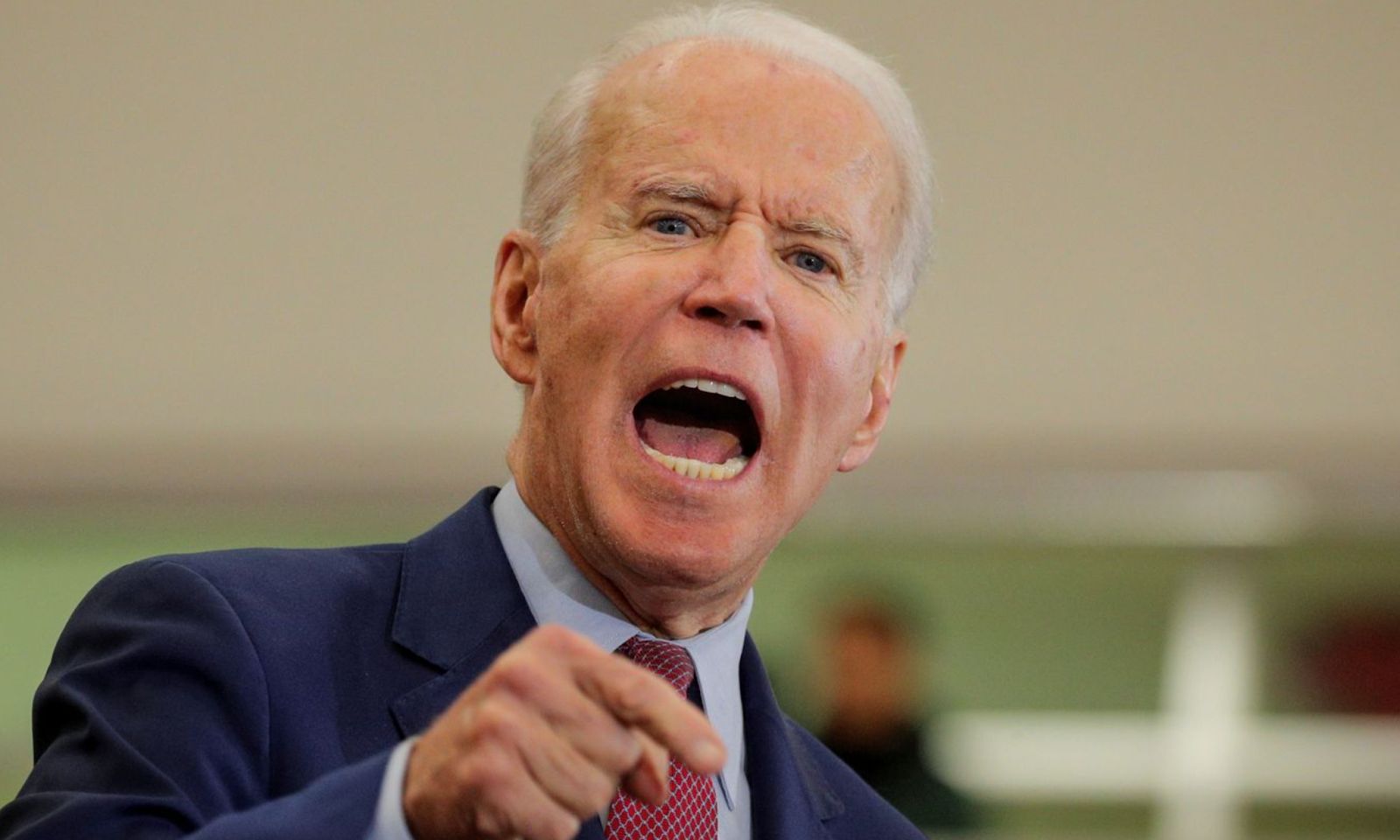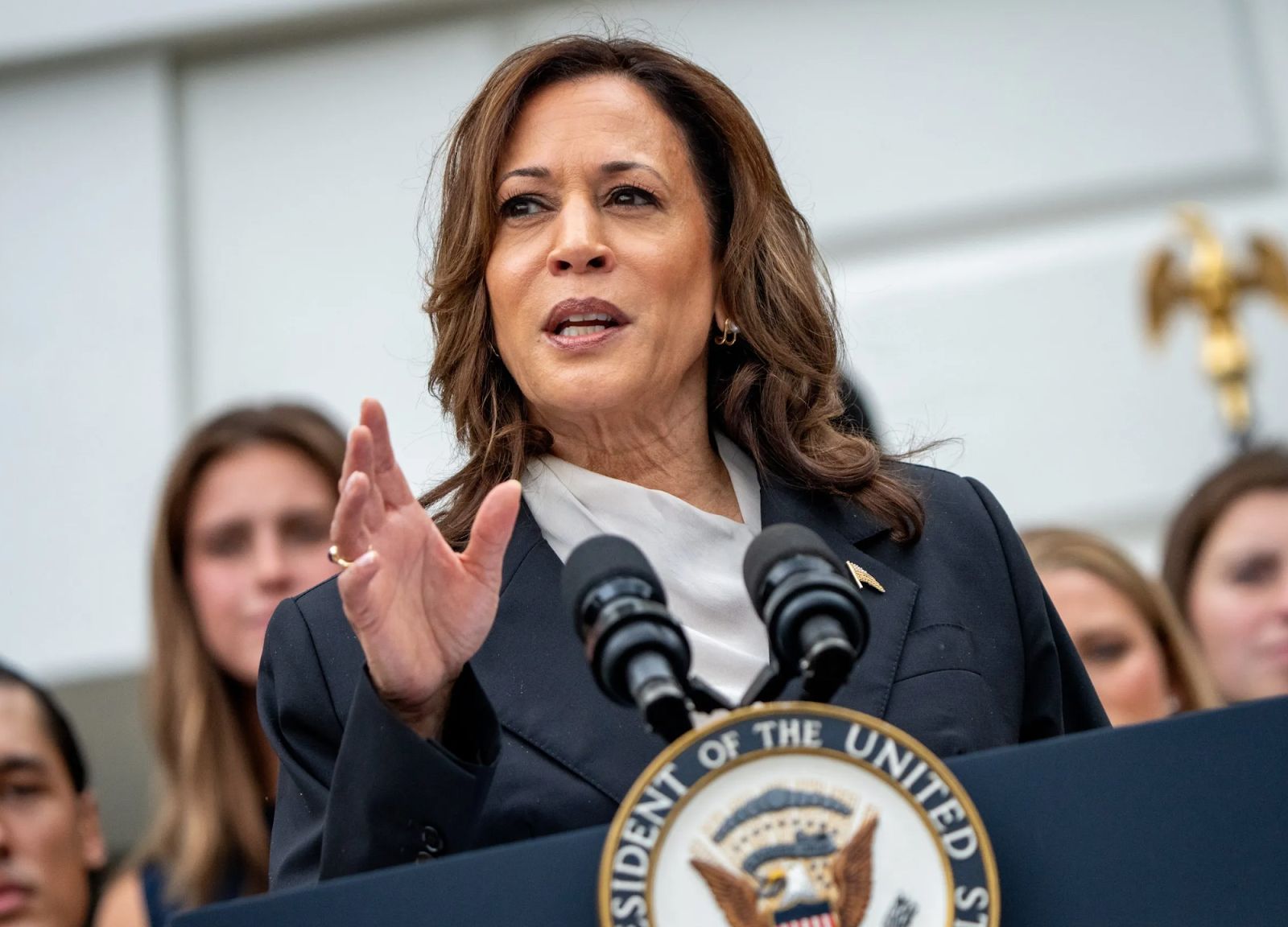Presidents and Crypto: Has Cryptocurrency Been Embraced by U.S. Leaders?
Cryptocurrency may have its roots in the United States with the cypherpunk movement of the ’90s , but it’s often viewed as a thorn in the side of the U.S. government.
In today’s world, it’s largely up to the president to set the record straight on whether crypto should be embraced or ignored in the country, leading to a wide array of opinions and remarks from influential leaders over the years.
Sponsored
But how extreme were these presidential stances? And were they justified for the time? Keep reading as we uncover how modern presidents truly felt about the sudden emergence of crypto during their time in the White House.
Table of Contents
- Why President’s Opinions Are So Important
- President’s Stances on Crypto
- Barack Obama
- Donald Trump
- Joe Biden
- Does Kamala Harris Support Crypto?
- Can Cryptocurrency Influence an Election?
- On the Flipside
- Why This Matters
Why President’s Opinions Are So Important
Since crypto is a fairly new phenomena, it’s been difficult for international governments to determine whether it’s a boon or risk to their societies.
Speaking internationally, as the leader of the most influential country on earth, the US president holds the power to sway popular opinions, while also enacting legislation that many other countries may take inspiration from.
On a domestic level, the regulatory status of crypto has been somewhat vague in the US since its inception. As a result, presidents hold more power than anyone else to steer popular sentiment and opinions one way or the other, meaning they possess the ability to greatly impact how much cryptocurrency is embraced by the wider population to facilitate its adoption.
President’s Stances on Crypto
Barack Obama
 Source: Wired.com
Source: Wired.com
Obama entered office in January 2009, just three months after the Bitcoin whitepaper was released. Therefore, his presidency and the steady rise of cryptocurrency happened simultaneously, but at first, the president seemed in no rush to acknowledge it.
Though more and more people gravitated towards Bitcoin (BTC) after the 2008 financial crisis, it wouldn’t reach Obama’s attention until his second term, starting in 2013. By this point, crypto had begun amassing a lot of traction, prompting the government to begin proposing a way to ‘backdoor’ people’s accounts to ensure no foul play was going on.
Simply put, the government wanted to monitor people’s crypto interactions and their account funds, which would remove individual privacy. In response, the popular non-profit crypto organization EFF (Electronic Frontier Foundation) sent a public petition containing 100,000 names for Obama to stop this development. Obama’s response? Complete silence.
Finally, in late 2016, Obama finally confirmed what people had been suspecting all along; he wasn’t a big fan of crypto. In an interview with CNBC , Obama doubled down on the idea that authorities should have backdoor access to personal accounts, and compared people owning Bitcoin to “Walking around with a Swiss bank account in their pocket”.
Obama made it clear by the end of his presidency that he had no plans to support crypto, resulting in backlash from community members. There was even an April Fools article that mocked Obama’s stance, claiming he had suddenly decided to “Adopt Bitcoin as a national currency”, showing just how out of touch many felt the president was when it came to cryptocurrency.
What Influenced Obama’s Stance?
So, why was Obama so resistant to even speaking about crypto? The simple answer is that he simply wasn’t prepared for its arrival.
We must remember that Bitcoin began trending upwards at a staggering pace, exceeding the $1 mark in early 2011 and reaching nearly $30 by June.
Meanwhile, in 2015, Ethereum shook the industry by introducing several new technological advancements, including smart contracts , DeFi apps , and NFTs . Memecoins also started to take over the industry after the explosive rise of Dogecoin (DOGE), which supported several charities and fundraising efforts.
Though Obama was eventually forced to comment on crypto since it had become so big, his initial hesitancy was presumably because he lacked a definitive crypto policy or knowledge of the industry to decide on his position.
Donald Trump
 Source: TheAustralian.com
Source: TheAustralian.com
Many crypto community members were excited about Trump’s election, as it seemed that his stance on crypto assets may be more favorable than his predecessor’s.
This even sparked a small surge in value for Bitcoin, according to a CNBC report “As with Brexit, bitcoin is seeing an upward jolt on the back of Trump’s election and the resultant lack of clarity on the global stage.”
Unfortunately, though, the Republican president, too, proved himself to be a skeptic, at least to begin with. Barely three years into his presidency, Trump made his opinion on crypto crystal clear when he tweeted that he’s “Not a fan of Bitcoin and other Cryptocurrencies” arguing that their value is based on “Thin air”.
Despite the negative remarks, some crypto commentators, such as influencer Brian Armstrong , argued that it was positive that a president was speaking so openly about crypto. Maybe this was a sign that presidents would acknowledge crypto more vocally going forward.
Fast-forward to his 2024 campaign rally and Trump completely changed his tune. He spoke openly at the Bitcoin Conference about how he dreamed of all Bitcoin “Being mined, minted, and made in the USA.”
He has also been actively involved with NFT projects and has even claimed to have established a “Strategic national Bitcoin stockpile” similar to the country’s federal reserve of gold. However, for now, his legacy in crypto will be defined by his initial term, which was full of skepticism.
What Influenced Trump’s Stance?
During his term, Trump specifically honed in on the notion that crypto holds no value. Given the context of the period, this was his main line of defense, and it’s not hard to see why he thought this.
From 2016 to 2020, the crypto industry experienced a continuous pattern of bubbles, booms, and crashes. For example, Bitcoin reached its all-time high of $19,000 in 2017 after a year-long bullish run, only to plummet by a third of its original price just days later. It would then repeat the same pattern a year later in November and December and again during the COVID-19 period.
This was the case for many cryptocurrencies at the time, and while it was certainly generating excitement and proved that demand in crypto was there, the market’s unpredictability was beginning to shine through.
Meanwhile, a few other notable developments made people hesitant about crypto, including the cyber hacks of two popular exchanges, Binance and CoinCheck.
All in all, Trump coincidentally began learning about crypto at a time when the market was experiencing wild fluctuations, which caused him to become a harsh critic until he ran again for president years later.
Joe Biden
 Source: Sky.news
Source: Sky.news
Rather than ignore crypto, Biden took active measures to crack down on it and even replace it.
One notable example is when he vetoed a bill that would have lessened the amount of guidance and rules that the SEC would need to give to select crypto firms, essentially putting more control in the group’s hands.
Additionally, the Biden Administration also published a 2023 report that openly criticized Proof of Work , a system Bitcoin uses for verifying transactions. In the same report, there are calls for “A U.S CBDC – a digital form of the U.S dollar” which refers to a digital national currency controlled by a central bank – a centralized version of crypto.
Biden also took it upon himself to appoint several key tech skeptics, one of whom is Gary Gensler , who has been a staunch opponent of crypto, as made evident in the SEC vs. XRP case.
There was also the notable incident of SamouraiWallet – a non-custodial wallet shut down for suspected money laundering. Many felt that this set a dangerous precedent for other non-custodial wallets , which could similarly be charged just for trying to maintain a heightened level of user financial privacy.
What Influenced Biden’s Stance?
Unfortunately, the crypto industry experienced some of its biggest controversies during Biden’s presidency, forcing him and his team to take a firm stance on crypto regulation.
The largest elephant in the room was the FTX scandal, which shut down the immensely popular crypto exchange due to criminal charges against its founder, Sam Bankman-Fried.
As the third biggest exchange at the time, which a multitude of celebrities had endorsed, this scandal shook the industry, impacting both prices and public confidence in crypto.
The FTX debacle was followed by numerous other controversies, including the collapse of TerraUSD and Luna stablecoins, the beginning of the SEC vs XRP lawsuit, and an abundance of celebrity tokens .
Speaking of celebrity tokens, this is also a time when the memecoin market started becoming rampant with scam coins and fraudulent actors. According to ChainPlay’s ‘State of Memecoins’ 2024 report , over 55% of memecoins up until then were scams, and over 97% of all meme tokens no longer existed.
The truth is though, at the time, the crypto industry was still making genuine strides in technology. The launch of Polkadot (DOT) in 2020, which allows for interoperability between blockchains , is one example, or Ethereum (ETH) moving from Proof of Work to the much more energy-efficient Proof of Stake .
However, since controversies defined most of this period, Biden’s firm anti-crypto stance starts to make more sense in hindsight.
Does Kamala Harris Support Crypto?
 Source: Fortune.com
Source: Fortune.com
Democrat nominee Kamala Harris has remained mostly tight-lipped on crypto, but there have been some subtle indications that she supports it.
Her Crypto4Harris virtual town hall meeting was seen as a step in the right direction, but it was also criticized for its lack of transparency on how and whether Kamala would fully back the evolution of crypto.
During a fundraiser in New York , the Democratic presidential candidate yet again sparked hope by claiming that she wants to “Encourage innovative technologies like AI and digital assets,” but she didn’t provide any follow-up.
Despite this, though, many social commentators have argued that she hasn’t been vocal enough, especially considering how influential crypto has become for voters.
Can Cryptocurrency Influence an Election?
Numerous studies indicate that between 40 and 50 million Americans, out of a country of 330 million, own crypto.
This indicates that cryptocurrency is becoming increasingly a part of people’s lives and should, therefore, be regarded as a crucial topic in presidential races.
Added to this, Coinbase conducted a study that indicated that 40% of all eligible voters in the U.S. are Gen Z and Millennials – the groups most closely associated with using crypto.
In the same study, only 7% of Americans said they felt satisfied with the current financial system, with 51% of young voters claiming they would be more likely to vote for a pro-crypto candidate.
Clearly, cryptocurrency has reached a stage of acknowledgment and acceptance among the broader public, and it is now influencing how people vote. This has been apparent in the 2024 election, but there’s little doubt that it will remain in the public zeitgeist as it develops.
On the Flipside
- Though making crypto completely illegal is hard to do, presidents still hold the power to disrupt it in other ways if they so wish to, such as banning exchanges
- The fact they haven’t taken these steps may indicate that, despite what the leaders may say, they may be more positive towards crypto than we realize
Why This Matters
The US has the largest crypto community on the planet and houses the largest number of miners. Therefore, decisions made by the head of state can serve as a huge influence for other countries to follow while also impacting individuals, depending on how they deploy regulations.
FAQs
In August 2024, former president Donald Trump tweeted that he dreamed of the U.S. becoming the “crypto capital of the planet” by mining and minting all tokens domestically.
World Liberty Financial is a DeFi protocol that sold tokens to supporters during the 2024 Trump campaign.
SEC stands for Securities and Exchange Commission. Gary Gensler currently serves as the 33rd chair of the SEC.
Disclaimer: The content of this article solely reflects the author's opinion and does not represent the platform in any capacity. This article is not intended to serve as a reference for making investment decisions.
You may also like
New spot margin trading pair — SAHARA/USDT!
SAHARAUSDT now launched for futures trading and trading bots
New spot margin trading pair — H/USDT!
Bitget x BLUM Carnival: Grab a share of 2,635,000 BLUM
